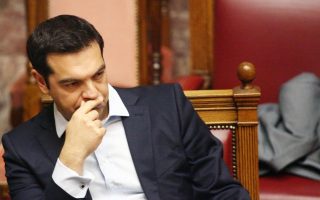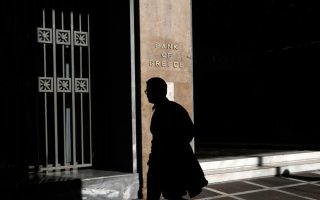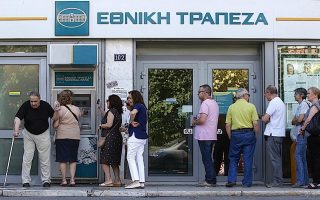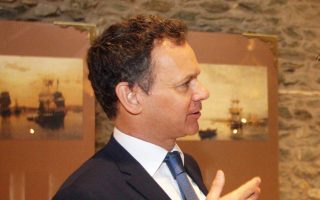Yes, but what about the debt?
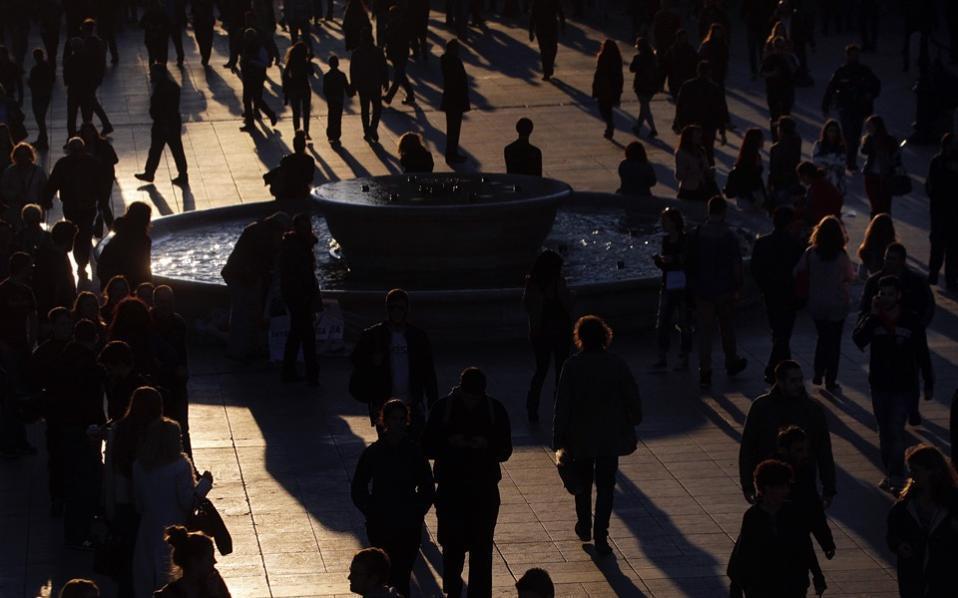
The Macedonia issue, Greek-Turkish differences, the Novartis case, the impending “exit from the bailouts,” the rising lawlessness and the poison in politics and public life are all serious issues and rightfully concern us. But how much can citizens really care about these things when they are worried about their very survival in this country, when they have to deal with ever greater debt and smaller incomes? Besides the massive public debt, what will happen with the debts that citizens and businesses owe to the state, to banks, to social security funds?
The numbers are merciless with regard to the size and complexity of the problem. This year’s state budget put the public debt at 318.3 billion euros last year. The European Commission estimates it at 181.1 percent of GDP, which in 2017 came to 178.6 billion. In 2009, before the first bailout, the public debt was at 299.7 billion euros, or 129.7 percent of a GDP that stood at 231 billion euros. Despite the fact that the debt was cut by 107 billion euros in 2012 in the largest ever haircut, despite the many years of austerity and reforms, the situation today remains dangerous. According to various scenarios examined by the European Commission, the country’s borrowing needs, which are estimated at 14.2 percent of GDP in 2018, may be somewhere between 17.9 percent and 56.6 percent of GDP in 2060, depending on a variety of factors, including growth and the size of budget surpluses. The International Monetary Fund asserts that the debt is not sustainable but the Fund will not be party to any reduction of what Greece owes, leaving our (wary and weary) eurozone partners to deal with this problem.
The positive side is that a primary deficit of 10.5 percent of GDP in 2009 was a 2.5 percent (at least) surplus last year. The economy grew by 1.6 percent of GDP, for the first time since a blip of 0.7 percent in 2014 as GDP lost a total of 25 percent between 2008 and 2016. Tourist arrivals and receipts grew by more than 10 percent between January and October last year, while unemployment, which hit 27.9 percent in September 2013, was at 20.5 percent in November. The signs of a fragile recovery, though, appear to depend very much on the great reduction in wages and pensions, on the fact that the state does not pay its own debts to citizens and businesses, and on the fact that many competitors in the tourism sector suffered serious problems. Things will improve drastically if local and foreign investors could be confident that our country has finally established stability and credibility in its tax system, in politics and the justice system – if they could believe that the government was serious about attracting investments. And yet, the latest loan tranche (of 5.7 billion euros) that our eurozone partners approved is still pending, because of delays in the Elliniko development project, in the privatization of the gas distributor DESFA, in implementing electronic auctions of foreclosed properties. The latest political tensions, also, undermine efforts to improve the economy.
The public debt problem is multiplied by the fact that citizens and businesses are being crushed by taxes and debts, while the banks remain in deep freeze. Deposits, which in 2009 had reached 237.8 billion euros, were at 146.2 billion at the end of 2017, a slight recovery from the 119 billion that they dropped to in May 2015 before capital controls were imposed. Indicative of citizens’ suspicion of banks and the state is the fact that some 41 billion euros in cash are circulating in Greece, a figure equal to 30 percent of GDP when the EU average is 8 percent. More than 4 million of Greece’s total population of 11 million owe over 100 billion euros in taxes and last year the state confiscated pensions, wages and assets from 180,000 people. Delinquent loans to banks, 49.9 percent of the total, are at 100.4 billion euros. Some 1.3 million people owe 26 billion euros to social security funds.
How will these debts be tackled when three out of 10 workers are employed part-time and are paid less than 400 euros per month, while half of the country’s households depend on pensions? Regardless of our hope that after so many sacrifices we will see some recovery, if there is no radical change in our political mind-set and no national effort, the crisis will not end.
